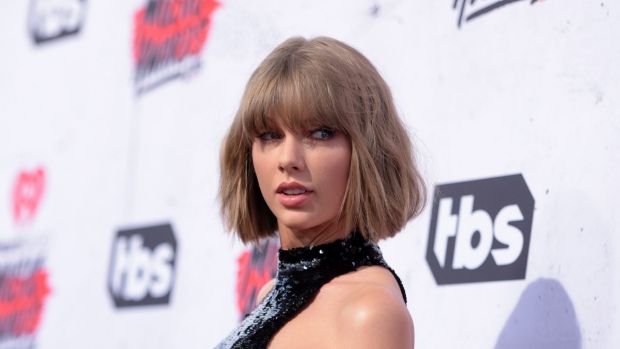While hundreds of thousands of people participated in Women's Marches around the world on Saturday, many celebrities showed up as well, joining in with those protesting President Trump's controversial campaign and election, particularly his treatment of women. The long list of stars included Miley Cyrus, Rihanna, Ariana Grande, Amy Poehler, Lena Dunham and many more celebs including Madonna and Alicia Keys made speeches and performed in Washington.
Some A-listers didn't attend the march, but tweeted support. Pop star Taylor Swift, for example, wrote this:
Celebrities lead anti-Trump rally
Scarlett Johansson, Madonna and Ashley Judd deliver powerful speeches at the Women's March a day after President Donald Trump's inauguration.
So much love, pride, and respect for those who marched. I'm proud to be a woman today, and every day. WomensMarch
— Taylor Swift (@taylorswift13) January 21, 2017
While many fans praised her for speaking out, the backlash started almost immediately. Over the weekend, publications rounded up the critical comments. (Buzzfeed: "Taylor Swift Didn't Go To The Women's March And People Are Mad." Cosmopolitan: "Taylor Swift Is Being Epically Dragged on Twitter By Her Fans." PopCrush: "Taylor Swift Faces Backlash Following Too Little, Too Late Women's March Support.") But why is Swift's tweet so controversial?
There are two elements to the criticism. The first is that Swift, 27, was silent about the divisive presidential campaign until Election Day, when she posted a picture of herself in line to vote, urging her 83 million Twitter followers to do the same. It's clear that many were interested in her views: "Who is Taylor Swift voting for?" was a popular Google search term last fall.
Swift has always remained mum about her political leanings. "I don't talk about politics because it might influence other people. And I don't think that I know enough yet in life to be telling people who to vote for," she told Time magazine in 2012.
While she also started out as a country music star, which is known to have a largely Republican fan base.

Yet her wide-ranging influence is exactly why people wanted her to speak up this past election about Trump's attitude toward women, given that Swift has become an outspoken advocate for feminism.
This leads to the second issue. While Swift's celebrity status obviously doesn't require her to reveal personal thoughts like voting preferences, she's fuelled her brand over the last several years as a feminist who encourages women to stick together. The beginning of her 1989 era (kickstarted with her wildly successful 2014 album) was accompanied by in-depth profile in Rolling Stone, which noted that "earlier in her carer, Swift deflected questions about feminism because she didn't want to alienate male fans. But these days, she's proud to identify herself as a feminist."
Since then, she's known for leading a powerful "squad" of famous women, and she frequently talks about how they empower each other. She even directed her Grammys acceptance speech for album of the year toward young women, urging them to stay focused when other people (in her case, Kanye West) try to take credit for their success.
For some, Swift's tweet about the Women's March is another example of the pop star co-opting feminism for her brand but not taking action, or misunderstanding the concept all together. (See: The Nicki Minaj VMAs dust-up of 2015.) "As a fan of yours, this is some bullsh---. You do not get to pick and choose when feminism benefits you," one fan tweeted. Others pointed out feminist celebrities who did attend: "Taylor should be going to the women's march. Ariana, Demi, Miley…so many others are going. I think Taylor should've gone. Sorry not sorry," another wrote.
Naturally, the issue spiraled down the social media rabbit hole, as Swift's fans were furious that people criticised the tweet.
Celebrities going public about any controversial topic can be a risky move these days, as you're guaranteed to make some people angry — particularly about politics, likely one of the reasons Swift stayed quiet so long in the first place.
Washington Post/Fairfax Media

